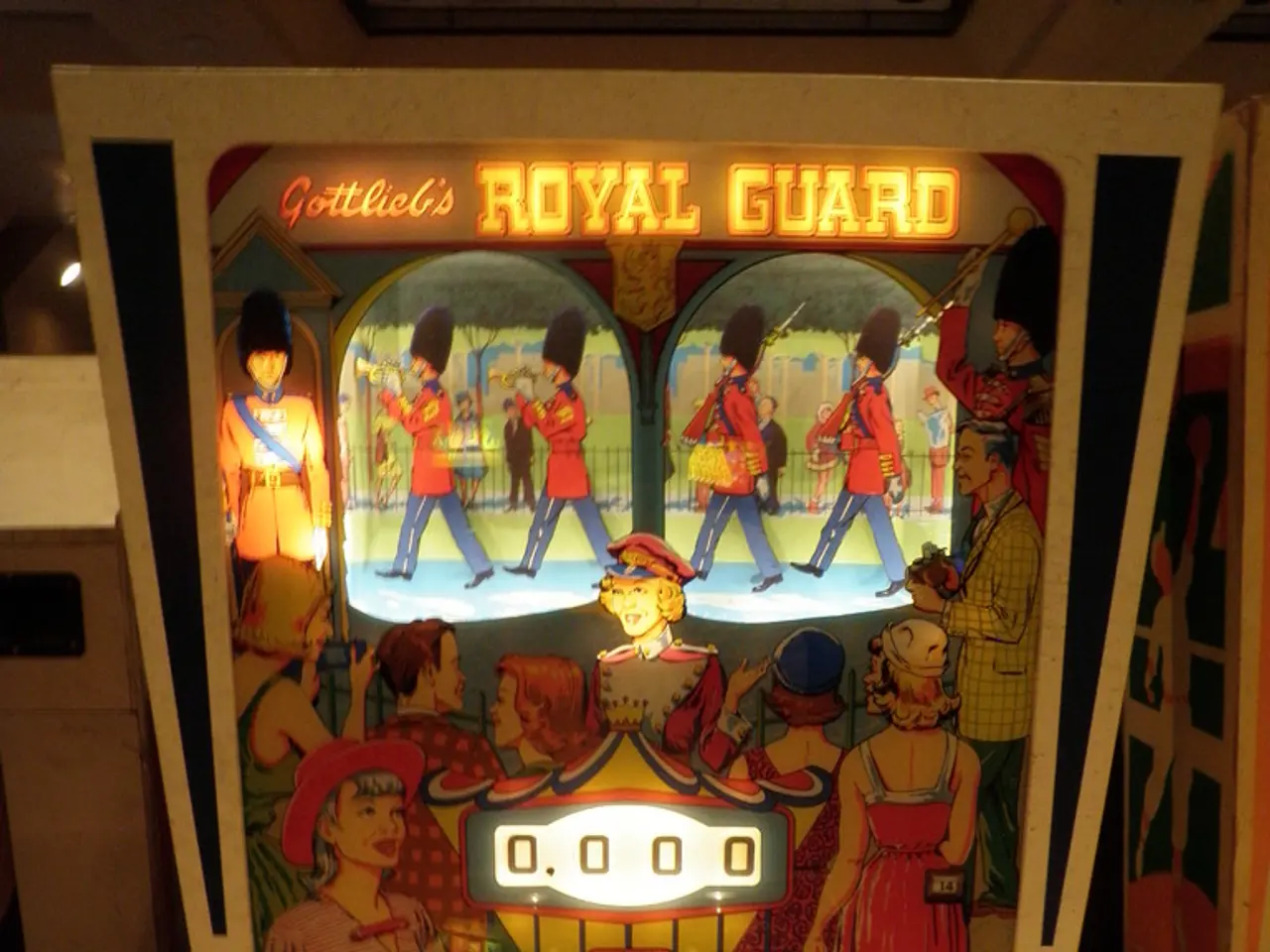Evolution and Adaptation of Video Games Throughout History
In the modern world, the gaming industry has undergone a remarkable transformation, adapting to technological advancements and evolving to meet the demands of a global audience. This transformation has been marked by several key trends, including the rise of mobile gaming, growth in online gaming, the incorporation of augmented reality (AR) and virtual reality (VR), and the use of artificial intelligence (AI) and blockchain technology.
One of the most significant changes in the gaming landscape is the surge in popularity of mobile gaming. Mobile games have come a long way from their humble beginnings, transitioning from basic games to console titles with stunning graphics, intricate storylines, and engaging gameplay. The convenience of playing games on smartphones has made gaming much more accessible, with people of all ages enjoying games in various settings such as at home, at work, or in cafes.
The rise of mobile gaming has also made it a dominant segment of the market, generating large revenue streams. In fact, mobile games are increasingly being adapted to PC and consoles, broadening audiences and providing a seamless gaming experience across devices. Hybrid monetization models combining ads and purchases help sustain developer revenue, while innovations in marketing strategies and user acquisition continue to drive growth.
Online gaming has also seen a significant increase in popularity in recent years. Online gaming facilitates global connections among players, allowing individuals from all corners of the world to come together and share in the gaming experience. This is evident in the growth of online multiplayer games, which often boast vibrant community ecosystems and high concurrent player counts. For example, games like China's Black Myth: Wukong attracted over 1.4 million concurrent online players shortly after launch, supported by AI-enhanced production.
New forms of engagement have also emerged in the online gaming world. Virtual YouTubers (VTubers) who stream gameplay with animated avatars have gained popularity, expanding social interaction and fan engagement. This trend reflects the growing importance of socializing online, particularly during times of social distancing, such as the COVID-19 pandemic.
The pandemic has also contributed to gaming's surge in popularity as a leisure activity and a means of socializing. With people spending more time at home, they have turned to gaming as a way to have fun and connect with others. This is evident in the rise of games like Among Us and Animal Crossing: New Horizons, which have become cultural phenomena during the pandemic.
The integration of AR and VR technologies into gaming has also transformed the way people enjoy games. AR games like Pokemon Go have gained widespread popularity, blending virtual and real worlds to create unique and immersive gaming experiences. VR games have also introduced new levels of immersion, allowing players to step into the game world and interact with it in a way that was previously unimaginable.
Technological advancements have also played a pivotal role in game development, notably through the increased use of AI for smarter NPCs and adaptive gameplay, blockchain for secure and decentralized in-game economies, and Layer 2 solutions like Polygon reducing transaction costs in blockchain gaming. AI also played a significant role in producing recent AAA titles, enhancing graphics and game mechanics.
In conclusion, recent evolution in gaming is driven by AI and blockchain technologies enabling smarter, more secure games; mobile gaming’s expansion and cross-platform integration; explosive growth in online multiplayer and community-driven gaming; and growing integration of AR/VR technologies to create more immersive experiences. These trends collectively contribute to a market expected to exceed $300 billion by 2029. The gaming industry continues to evolve, offering more engaging, immersive, and connected experiences for players around the world.
[1] Blockchain Gaming Alliance (BGA). (2021). Blockchain Gaming Market Report 2021. Retrieved from https://www.blockchaingamingalliance.org/reports
[2] Newzoo. (2021). Global Games Market Report 2021. Retrieved from https://www.newzoo.com/insights/reports/global-games-market-report-2021/
[3] Statista. (2021). Global video game market revenue 2010-2025. Retrieved from https://www.statista.com/statistics/272126/worldwide-video-game-market-revenue/
[4] PwC. (2021). Global Entertainment & Media Outlook 2021-2025. Retrieved from https://www.pwc.com/gx/en/services/deals/global-entertainment-media-outlook.html
- The influx of AI technology into the gaming industry has improved game graphics and mechanics significantly in recent AAA titles.
- Social media platforms have played a crucial role in promoting games, as influencers and streamers host live sessions, fostering wider audience engagement.
- In the realm of education and self-development, edutainment games are gaining traction, blending learning with entertainment to promote personal growth.
- As the gaming industry continues to grow, it is expected to exceed $300 billion by 2029, according to reports from the Blockchain Gaming Alliance and Newzoo.
- The rise of AI-powered personal assistants and chatbots demonstrates the integration of AI in various aspects of our lifestyle, from gaming to home-and-garden devices.
- The integration of blockchain technology in gaming has resulted in secure, decentralized in-game economies, creating new opportunities for stable, profitable transactions.
- Sustainable living and technology often intersect within the gaming industry, as some companies even use renewable energy sources to power their data centers.
- The surge in crime-and-justice-themed titles reflects the growing interest in pop-culture narratives focusing on investigations, courtroom drama, and crime-solving.
- Set in future societies, sci-fi and fantasy books provide endless inspiration for gaming creators, fueling the imagination and captivating audiences with their intricate storylines and technology-driven worlds.




